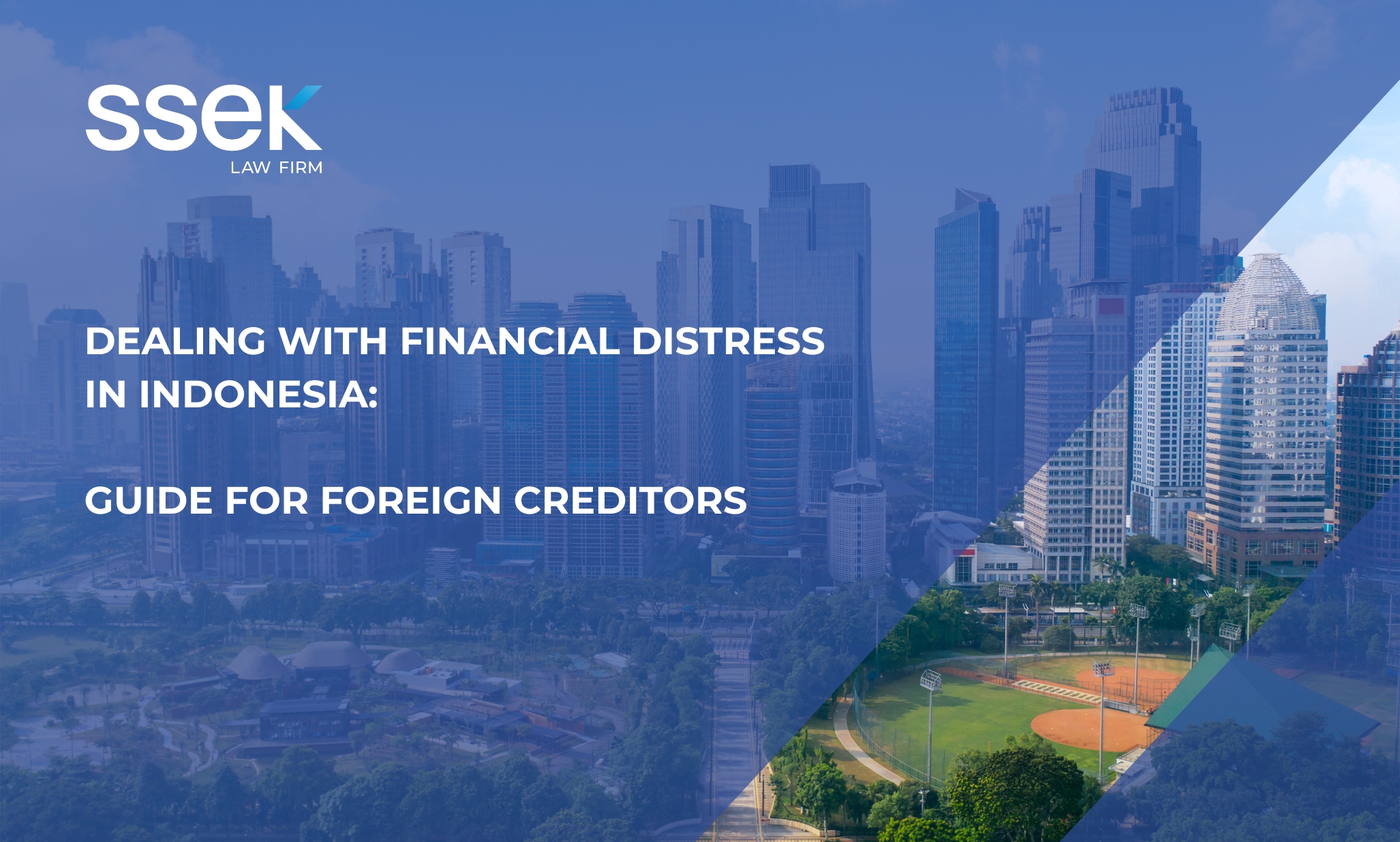


Indonesia’s vibrant business landscape offers substantial opportunities. Nevertheless, there are certain aspects that creditors must be aware of to better protect their interests when local partners or debtors face financial distress. For foreign creditors and investors, understanding the legal mechanisms available when Indonesian counterparties become insolvent or financially unstable is essential.
The primary legal framework governing insolvency situations in Indonesia is Law No. 37 of 2004 on Bankruptcy and Suspension of Debt Payment Obligations (“Bankruptcy Law”). It provides two key avenues: Suspension of Debt Payment Obligations (Penundaan Kewajiban Pembayaran Utang or “PKPU”) and bankruptcy proceedings. These mechanisms facilitate either structured debt restructuring or the liquidation of a debtor’s assets.
Understanding PKPU and Bankruptcy Procedures
PKPU and bankruptcy are separate but related court-supervised procedures designed to address situations where a debtor cannot or refuses to fulfil its financial obligations.
A PKPU is a temporary debt moratorium providing debtors a court-sanctioned period to propose a restructuring plan to creditors, aiming to avoid bankruptcy. A PKPU petition may be filed by the debtor itself or by creditors, including foreign creditors, with the Commercial Court that has jurisdiction over the debtor’s registered domicile. To initiate a PKPU, the debtor must satisfy two primary conditions: (i) having at least two creditors and (ii) having at least one outstanding debt due, payable, and undisputed, commonly known as the “simple proof” (pembuktian sederhana) requirement.
During PKPU proceedings, creditors must submit their claims to the court-appointed administrator(s), who facilitate negotiations on the restructuring plan (composition plan). The final restructuring terms must be approved by creditors and ratified by the court through homologation. Additionally, any significant asset-related transaction by the debtor during a PKPU requires the approval of the administrator (pengurus), ensuring asset preservation and preventing detrimental dissipation.
When restructuring is not feasible, bankruptcy may be pursued. Bankruptcy petitions can also be filed by the debtor or its creditors if the debtor has at least two creditors and at least one overdue and unpaid debt. Bankruptcy aims to liquidate the debtor's assets for equitable distribution among creditors according to statutory priorities.
Upon a bankruptcy declaration, the receiver takes control of the debtor’s estate under supervision from a designated supervisory judge. Bankruptcy proceedings involve prescribed timelines for claim submissions, verification of outstanding tax obligations, and creditor meetings for claim verification.
Participation of Foreign Creditors
Indonesia’s Bankruptcy Law grants equal legal standing and rights to foreign creditors, provided they properly register and substantiate their claims. Foreign creditors can participate in PKPU and bankruptcy processes by registering claims, attending creditor meetings, and voting on restructuring proposals. Claims submitted by foreign creditors must be supported by the necessary documentation, translated into Bahasa Indonesia, and duly legalized or apostilled, as required.
Significantly, Articles 133(3) and 278(5) of the Bankruptcy Law give foreign creditors the flexibility to submit claims even after standard registration deadlines in PKPU or bankruptcy processes have expired.
Risk Considerations for Foreign Creditors
Foreign creditors facing distressed Indonesian counterparties must critically examine underlying agreements, focusing on provisions related to default, insolvency, dispute resolution, and potential exit strategies. Securing assets through pledges, guarantees, or third-party assurances can significantly enhance recovery prospects.
To effectively navigate distress scenarios, foreign creditors and investors should:
- Closely monitor the financial and operational condition of Indonesian counterparties.
- Ensure comprehensive contractual documentation with clear insolvency-related protections. In our experience, clients should ensure that such documentation includes the following:
-
- the title of the agreement should include the word “debt” (utang) if it is intended to capture the debtor’s repayment of its financial obligation;
- the agreement should clearly state the debtor’s obligation to repay the debt; and
- the agreement should be translated into and executed in the Indonesian language, with legal counsel ensuring that the Indonesian version accurately reflects the English drafting and the parties’ intention.
- Carefully structure and document security arrangements to support effective recovery.
- Engage reputable local legal counsel experienced in Indonesian insolvency and restructuring practices.
- Act promptly upon detecting early signs of financial distress to mitigate risk and optimize recovery opportunities
This publication is intended for informational purposes only and does not constitute legal advice. Any reliance on the material contained herein is at the user’s own risk. All SSEK publications are copyrighted and may not be reproduced without the express written consent of SSEK.









